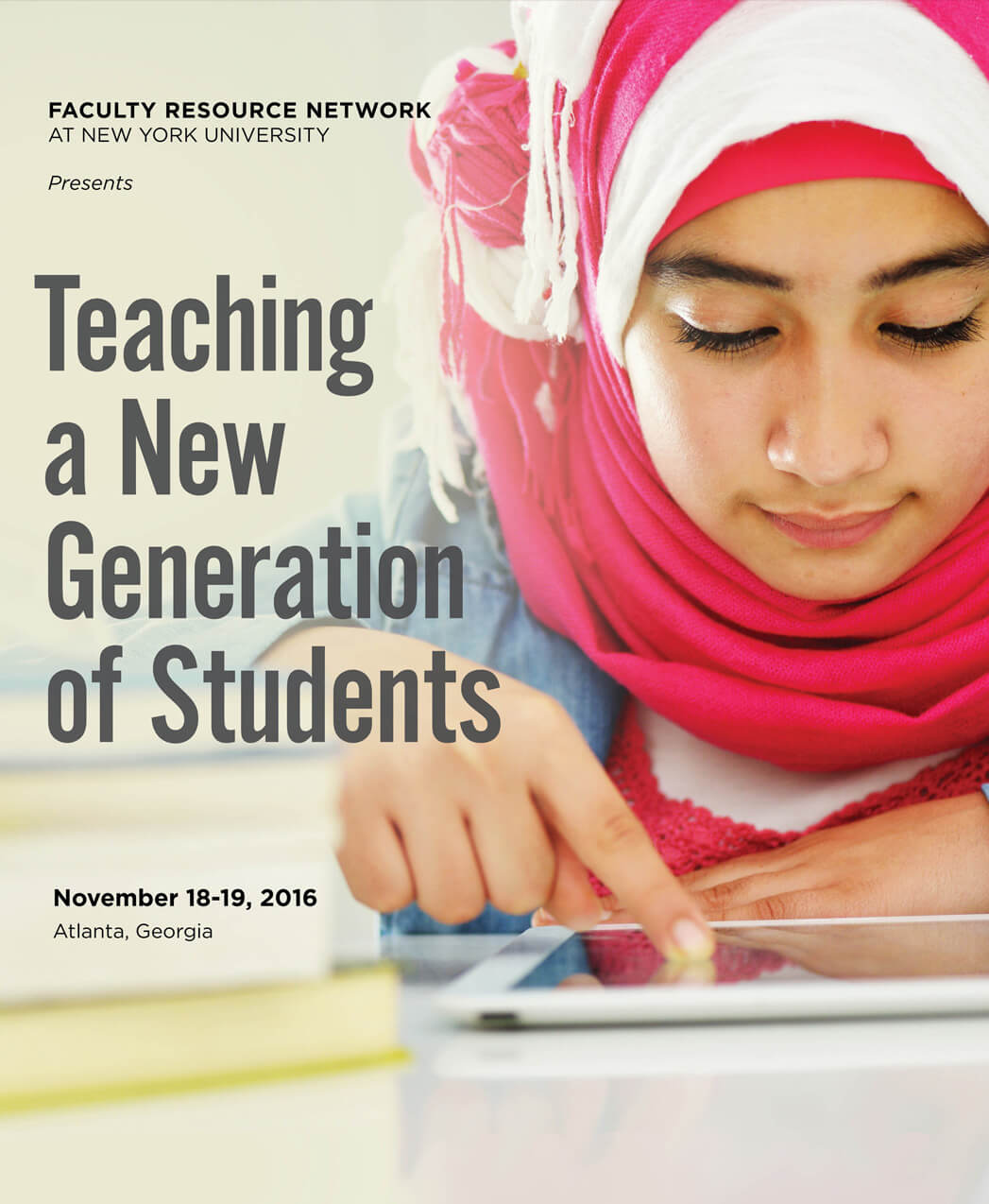Clark Atlanta University, Morehouse College, and Spelman College
Atlanta, Georgia
Symposium Overview
Today’s college students are both like and unlike those of previous generations. They bring with them similar aspirations for personal growth and development, but with increasing pressures to gain an education that provides a path to a profession. Among this group are many first-generation college students and underrepresented minorities, along with students from abroad, veterans, prison inmates, and students with disabilities. The challenges that faculty members now encounter in their classrooms require concerted and collaborative … Show more
Today’s college students are both like and unlike those of previous generations. They bring with them similar aspirations for personal growth and development, but with increasing pressures to gain an education that provides a path to a profession. Among this group are many first-generation college students and underrepresented minorities, along with students from abroad, veterans, prison inmates, and students with disabilities. The challenges that faculty members now encounter in their classrooms require concerted and collaborative efforts to help all students achieve academic success, especially those who need increased academic support.
According to the U.S. Department of Education, the college classroom of the future will become more diverse than ever in our history. Are colleges and universities prepared to educate increasing numbers of historically underrepresented students? In what ways will increased student diversity influence classroom conversations, or the types of courses offered within the curriculum? How will faculty members respond to students with varied backgrounds and experiences that may differ from their own? How can colleges and universities promote the retention, progress, and success of first-generation students?
Other student populations are equally in need of special attention. Many veterans are now enrolling in college after their military service. Transfer students, especially those making the transition from two-year to four-year institutions, often struggle to adjust to the social and academic culture of a new college or university. Commuter students are often left out of conversations about campus community. Students with disabilities require extra assistance to support their educational goals. Finally, there is growing interest in offering college courses to prison inmates, with the aim of breaking the cycle of recidivism. How is higher education responding to the needs of this diverse set of students?
The 2016 Faculty Resource Network National Symposium, which took place in Atlanta, Georgia, examined these challenging questions by drawing on the collective expertise of scholars, educators, practitioners, and administrators. The sessions were held at three FRN member institutions: Clark Atlanta University, Morehouse College, and Spelman College.

Spring 2017 Journal
Presentations
Presentations
Lynette Ralph, Xavier University of Louisiana
Pamela Waldron-Moore, Xavier University of Louisiana
Adrian Woods, Xavier University of Louisiana
Kai Burkins, Johnson C. Smith University
Dezette C. Johnson, Johnson C. Smith University
Terza Silva Lima-Neves, Johnson C. Smith University
Tonya M. Williams, Johnson C. Smith University
Melanie Greene, Pace University
James Lawler, Pace University
Felicia Fullilove, Spelman College
Lisa Hibbard, Spelman College
Leyte L. Winfield, Spelman College
Sheila T. Gregory, Clark Atlanta University
Cynthia S. Wiseman, Borough of Manhattan Community College
Richard Vogel, Farmingdale State College
Jeffrey Gaab, Farmingdale State College, State University of New York
Louise Hainline, Brooklyn College, City University of New York
Gail Horowitz, Brooklyn College, City University of New York
Peter Lipke, Brooklyn College, City University of New York
TR Muth, Brooklyn College, City University of New York
Lori Sims, Brooklyn College, City University of New York
Catherine L. Adams, University of the Virgin Islands
Lawanda Cummings, University of the Virgin Islands
Karen Brakke, Spelman College
Jimmeka Guillory, Spelman College
Sandra Sims Patterson, Spelman College
April D. Lundy, Clark Atlanta University
Rosalee Martin, Huston-Tillotson University
Alice E. Stephens, Clark Atlanta University
Emily A. Fogarty, Farmingdale State College, State University of New York

